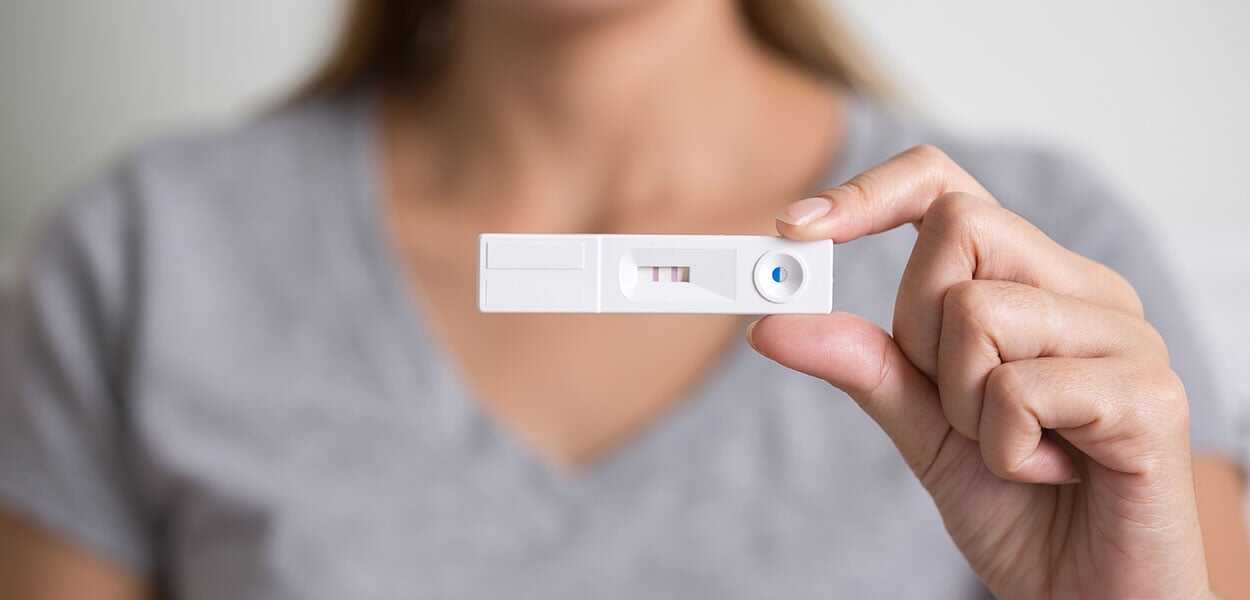Diagnostic Testing Systems
Empty plastic cassettes play a really important role in diagnostic testing because they just work so reliably and efficiently. Labs all over the place rely on these little containers to hold samples without messing them up during analysis. Industry numbers show that plastic options hit around 95% accuracy rates, way better than old school glass alternatives. Why? Because plastic doesn't react with most substances, cutting down on contamination problems that can ruin test results. This makes a big difference when doctors need clear answers from lab tests, especially in busy hospital settings where time matters.
Most labs go for plastic cassettes instead of glass ones mainly because they're safer and cheaper in the long run. Glass just doesn't cut it when there's always a risk of breaking or getting contaminated somehow. Plastic stands up to rough handling much better and stays sterile longer too. Plus, switching to plastic means less chance of samples mixing together accidentally, which makes test results way more accurate. That accuracy matters a lot when doctors need reliable info to treat patients properly.
Urine Sample Collection Containers
Plastic containers for collecting urine samples play a big role in getting good diagnostic results. The way these containers are made keeps samples from getting mixed up with other substances, which means tests come back with trustworthy data most of the time. Studies looking at this issue show that single use plastic containers cut down on cross contamination problems by quite a bit compared to what happens with containers that get reused multiple times. This makes a real difference in keeping patients safe and making sure doctors can actually trust what their lab tests are telling them about health conditions.
Plastic has some real benefits when compared to older materials regarding cleanliness and how comfortable patients find things. Research shows that people actually prefer disposable plastic containers because they're easier on sensitive areas and make them more likely to follow through with giving samples properly. Clinics benefit too since there's no need to spend hours scrubbing down reusable options between uses. This cuts down on cross contamination worries and saves staff time that would otherwise go into tedious cleaning routines. The whole process just runs smoother when everyone involved doesn't have to worry about sterilizing equipment after every single use.
Pharmaceutical Research Applications
Plastic empty cassettes have become pretty important in drug research labs across the country. Labs rely on these little containers to handle their pharmaceutical samples consistently from one experiment to another. Without this standardization, test results would all over the place making it hard to draw any meaningful conclusions about new medications. What makes these cassettes so useful? Well, they let scientists run several different tests at once while keeping each sample separate and intact throughout the whole process. Some labs report saving hours every week just by switching to this system instead of traditional methods that require constant monitoring between tests.
In lab settings, plastic cassettes really boost how things run day to day. Labs can process samples much quicker because these cassettes are easy to handle and work well with automation equipment. Some actual field data shows that when labs switch to standard plastic cassettes, they often see around a 30% improvement across different test procedures. The impact is pretty substantial. Not only does this mean getting through more work in less time, but it also cuts down on mistakes during complex experiments. For pharmaceutical companies racing against deadlines, this kind of reliability makes all the difference in bringing new treatments to market faster.
Size and Capacity Specifications
The size and capacity of plastic empty cassettes play a crucial role in their functionality within the medical sector. These specifications allow the cassettes to meet diverse medical requirements by accommodating various sample types and volumes. Here's an overview of how size variations enhance practical applications:
1. Size Range: Plastic cassettes come in numerous sizes to suit specific needs such as small, medium, and large based on laboratory or hospital specifications.
2. Custom Solutions: Hospitals and labs may request custom-sized cassettes that optimize workflow efficiency, making handling and storage more manageable.
3. Real-world Applications: In practice, custom size applications have facilitated faster sample processing and enhanced waste management efficiency within medical environments.
The availability of different sizes enables adaptation to unique medical testing requirements and ensures seamless integration into laboratory processes.
Material Grade Selection
Understanding the material grades used in plastic cassettes is integral for ensuring performance and safety. Different grades of plastic influence the durability, safety, and compliance of medical products:
1. Plastic Grades: Various grades like polypropylene and polyethylene are commonly used, each offering distinct advantages in terms of durability and chemical resistance.
2. Impact on Performance: Higher-grade plastics typically offer superior performance under demanding conditions like high temperatures or exposure to chemical agents.
3. Case Studies: Suppliers report enhanced material performance in rigorous medical settings, demonstrating the necessity for careful grade selection to ensure reliability and safety.
Selecting the appropriate material grade is vital for maintaining the efficacy and safety of medical products, catering to regulatory standards and operational demands.
Branding and Barcode Integration
The integration of branding and barcode systems in plastic cassettes is essential for improving visibility, tracking, and compliance within medical settings. Branding helps distinguish products, while barcodes streamline operational processes:
1. Visibility: Custom branding indicates ownership or specific medical use, reinforcing product identification and reducing mix-up incidents.
2. Enhanced Tracking: Barcodes facilitate efficient sample tracking, ensuring compliance with safety standards and regulatory requirements.
3. Efficiency Improvements: Data illustrate significant improvements in error reduction and workflow efficiency through the application of customized branding and barcode solutions.
Through effective branding and barcode integration, healthcare providers can achieve superior inventory management and maintain stringent compliance within their operations.
Hygienic Disposable Design
How disposable medical products are designed matters a lot when it comes to stopping those nasty hospital acquired infections that plague so many facilities these days. Plastic cassettes meant for one time use cut down on cross contamination because once they're done their job, they just get thrown away, keeping things sterile. Some real world data backs this up too. Hospitals that switched to disposables saw infection rates drop quite a bit. One particular research project looked at surgical wards specifically and found around 30 percent fewer infections after making the switch to disposable tools. Medical professionals always stress how important clean conditions are in hospitals, and most agree that getting rid of used cassettes regularly is part of good waste management practices. Hospital staff manuals typically recommend tossing out these items promptly to keep patients safe from preventable illnesses.
Cost-Effective Mass Production
Plastic cassettes tend to save money, particularly when manufacturers crank them out in big batches, cutting down on per unit costs quite a bit. When hospitals buy these plastic empty cassettes by the truckload instead of going for reusable ones, they actually spend less cash overall. Research looking at real world hospital budgets shows disposables often cost less than reusables if we factor in all the cleaning and maintenance work needed to keep those reusable items safe for patients. Clinics that switch to these factory made disposable cassettes typically see their bottom line improve over months and years as well. The money saved isn't just pocket change either it helps simplify how much they need to spend on keeping things clean and managing stock levels too. No wonder so many medical centers around the world are now choosing disposable options despite what some might think about waste issues.
Compatibility with Automated Equipment
Plastic cassettes work really well with automated lab equipment, making medical tests faster and more efficient overall. The design fits into these machines almost perfectly, so technicians don't have to handle samples as much, which speeds things up across the whole workflow. Real world data from labs shows pretty impressive gains when they switch to these systems with compatible disposable cassettes. Some facilities have reported processing samples at least 30% faster while maintaining accuracy levels. We've seen this happen time and again in hospitals and research centers where automation meets good quality disposables. The bottom line is that these plastic components aren't just convenient accessories but essential parts of modern diagnostic workflows in healthcare settings today.
ISO-Certified Manufacturing Standards
Getting a supplier with ISO certification really matters if we want good quality medical cassettes. The ISO 13485 standard in particular looks at quality management for medical devices, so it basically makes sure these cassettes are up to international quality standards. Big names like ISO itself and the FDA back these standards because they know what they're talking about. When looking at possible suppliers, don't just glance at their certificates. Take time to check out what exactly those certifications cover. Does the scope match what we need for our products? For instance, someone certified might not actually handle plastic urine collection containers or other disposables properly. Going with ISO certified companies means our medical supplies will generally be safer and better made, which is obviously important when dealing with healthcare products.
Custom Prototyping Services
Custom prototyping plays a big part in creating those special plastic cassettes needed for healthcare applications that don't fit standard designs. Looking at real world examples shows how many medical products actually make it to market because companies were able to test different versions through prototype development. Take medical testing cassettes for example, they've been developed specifically for certain diagnostic needs where off-the-shelf options just won't work. Working with custom prototypes does mean spending more money at first and waiting longer than usual, but when the final product fits exactly what doctors and nurses need in their daily work, all that extra time and cash pays off. The right suppliers who offer these prototyping services help bring forward new ideas that really change how patients are treated day to day.
Regulatory Compliance for Medical Devices
Trying to figure out the regulations around medical cassettes and related products can be pretty tricky when looking for good suppliers. The FDA has these rules about medical devices needing to meet certain safety and effectiveness criteria before they hit the market. A supplier worth working with will have shown they follow these regulations consistently over time, which gives hospitals peace of mind about what they're buying. When shopping around, look for companies that are open about how they handle regulation stuff and keep all those important certifications current according to both national laws and global standards. Medical facilities tend to prefer suppliers who actually know the ropes because this shows real dedication to making sure everything works safely and properly. After all, nobody wants problems with something as critical as disposable medical cassettes.
Table of Contents
- Diagnostic Testing Systems
- Urine Sample Collection Containers
- Pharmaceutical Research Applications
- Size and Capacity Specifications
- Material Grade Selection
- Branding and Barcode Integration
- Hygienic Disposable Design
- Cost-Effective Mass Production
- Compatibility with Automated Equipment
- ISO-Certified Manufacturing Standards
- Custom Prototyping Services
- Regulatory Compliance for Medical Devices

